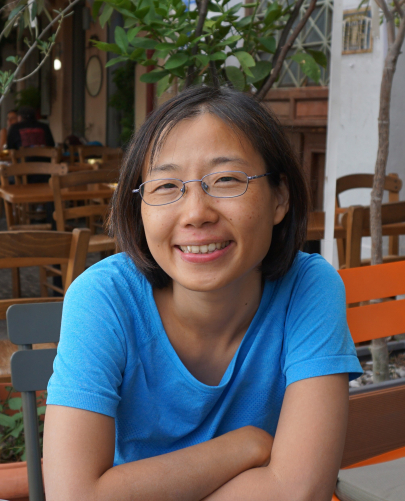Jenny WuInstitut de génétique et développement de Rennes CNRS / Université de Rennes
Mes recherches
During my early scientific training, I became interested in understanding fundamental biological processes using a combination of genetics, biochemistry, and molecular biology in simple model organisms. My graduate studies in the laboratory of Dr. Fred Winston at Harvard Medical School (Boston, USA) investigated the structure and function of chromatin modifying complexes, taking advantage of the powerful S. cerevisiae genetic system. For my postdoctoral work, I joined the laboratory of Dr. Paul Nurse at Rockefeller University (New York, USA), where I studied the regulation of DNA replication using the fission yeast S. pombe. In my research team, we focus on investigating new and unexplored aspects of S phase control as well as the interplay between DNA replication and genome maintenance.
Mon projet ATIP-Avenir
The eukaryotic program of DNA replication: establishment and impact on cellular physiology and genome maintenance
Maintenance of genome integrity requires the accurate duplication and transmission of genetic information. This is ensured by multiple layers of regulation that specify the sites of DNA replication initiation, or origins, across the genome and that regulate the S phase checkpoint. These mechanisms are conserved throughout eukaryotes and are critical for cell growth and proliferation. Notably, the replication program, which is defined by the distribution of active origins across the genome, changes during development and differentiation, suggesting that origin selection is a highly controlled process. However, despite significant efforts to dissect replication initiation, the core features driving origin selection and the importance of the replication program for cellular function and genome maintenance remain surprisingly unknown. To address these questions, we took advantage of unique approaches using the fission yeast Schizosaccharomyces pombe as a model. Our studies aimed to: 1) determine the fundamental parameters for origin activation, 2) address the functional importance of the replication program, and 3) investigate how the coupling of checkpoint defects and replication stress may deregulate the replication program and thereby promote genome instability. Our recent work has brought new insight to our understanding of how and why cells organize the essential process of genome duplication.
